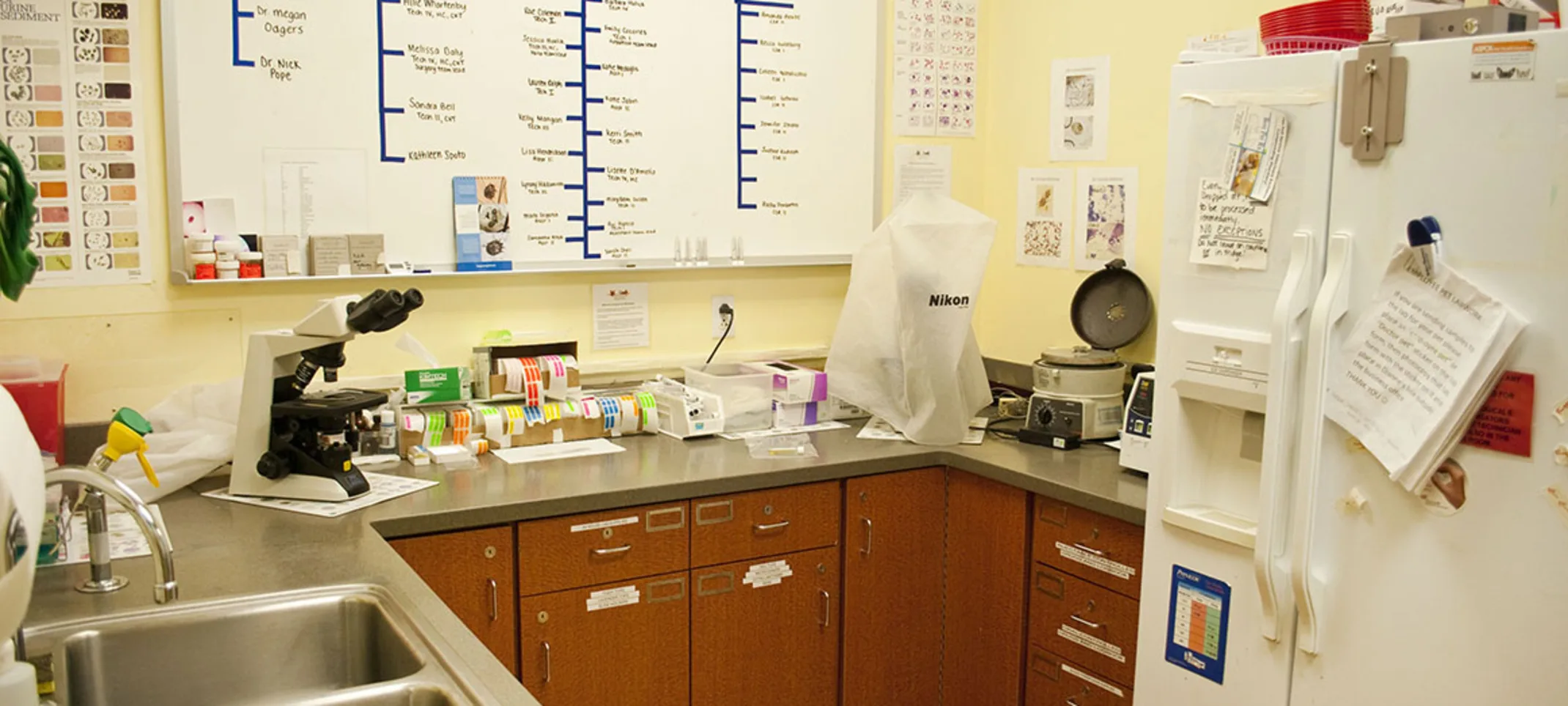Princeton Animal Hospital & Carnegie Cat Clinic
Diagnostic Services
Diagnostic testing, such as lab work or radiology is often needed to properly diagnose a problem with your pet.

Despite our best efforts, we know that there may be situations where additional testing may be needed. Diagnostic testing, such as lab work or radiology is often needed to properly diagnose a problem with your pet. While we wish we could find everything on physical examination, it is just not possible. Here at the Carnegie Cat Clinic we have an extensive array of diagnostic capabilities to help get the answers we need fast. Here are some of our capabilities.
Blood Screens – Many technologies that help humans live longer healthier lives are available to your pet. By performing some basic blood screens, we can gather information concerning the health and wellbeing of your pet. Some blood screens that we offer include thyroid and diabetes testing, medication and disease regulation profiles, yearly comprehensive blood screens (a component of a thorough wellness exam), pre-anesthetic blood screen, diabetic glucose curves, sick patient profiles, and more.
Radiographs (X-Rays) – Princeton Animal Hospital & Carnegie Cat Clinic invested in digital radiography and high frequency medical imaging machines in 2009. This technology allows us to see detail in X-rays like never before. We can also view these in an exam room, which allows us to show you the images as we describe what they tell us about your pet. We utilize this same technology in our dentistry department to examine your pet's oral cavity.
Additionally, our hospital was the first in the country to utilize and blend our specific equipment with our procedures and programs. Because our images are digital, they can easily be shared with board certified radiologists around the country for timely second opinions and consultations. We can also provide you with a copy and the licensed viewing software if necessary.
Abdominal Ultrasound & Echocardiograms – We have the ability to provide your pets with a complete abdominal and cardiac workup. Abdominal ultrasounds and Echocardiograms (ultrasound of the heart) are regularly performed at our practice and sent out to board certified radiologists for interpretation.
Ocular Testing – We have full ocular diagnostic capabilities. If it is a simple eye infection or the monitoring of Glaucoma, we have the tools necessary to keep your pets eyes in top working order. Our diagnostic testing includes Shermer Tear Test (measuring tear production), Fluorescein Staining (looking for injury), and Tonopen Ocular Pressure (Glaucoma Testing).
Fecal testing – The Center for Disease Control and the Companion Animal Parasite Council both recommend fecal testing two to four times per year. Many of these parasites are hazardous to both you and your pet as some are Zoonotic, which means they can be transferred to people. Fecal testing should be done at the very least, once a year for indoor cats and two to four times a year for outdoor cats. For kittens, you should bring a sample in every visit.
Urine – With many laboratory profiles a urine sample is needed. There are also times when we may need to do a more complete urine screening. Diagnostics such as cultures and sediment analysis are often used.
Dermatology – We offer a full array of dermatological testing. We often perform cytology's, Skin scrapings, cultures, and biopsies, which look for abnormalities such as mites and infections.
Ear Testing – Along with dermatology, problems affecting the ears are one of the most often scheduled non-wellness appointments we see. Infections have numerous causes, which makes it vitally important that we accurately identify the source in order to provide the correct medications to fight these infections or infestations.
For this reason, we offer a wide range of diagnostic capabilities including ear mite swabs, cytology, cultures, and flushing using a high-power scope and camera so we can monitor the ear drum and the progress as we flush the ear canal.
